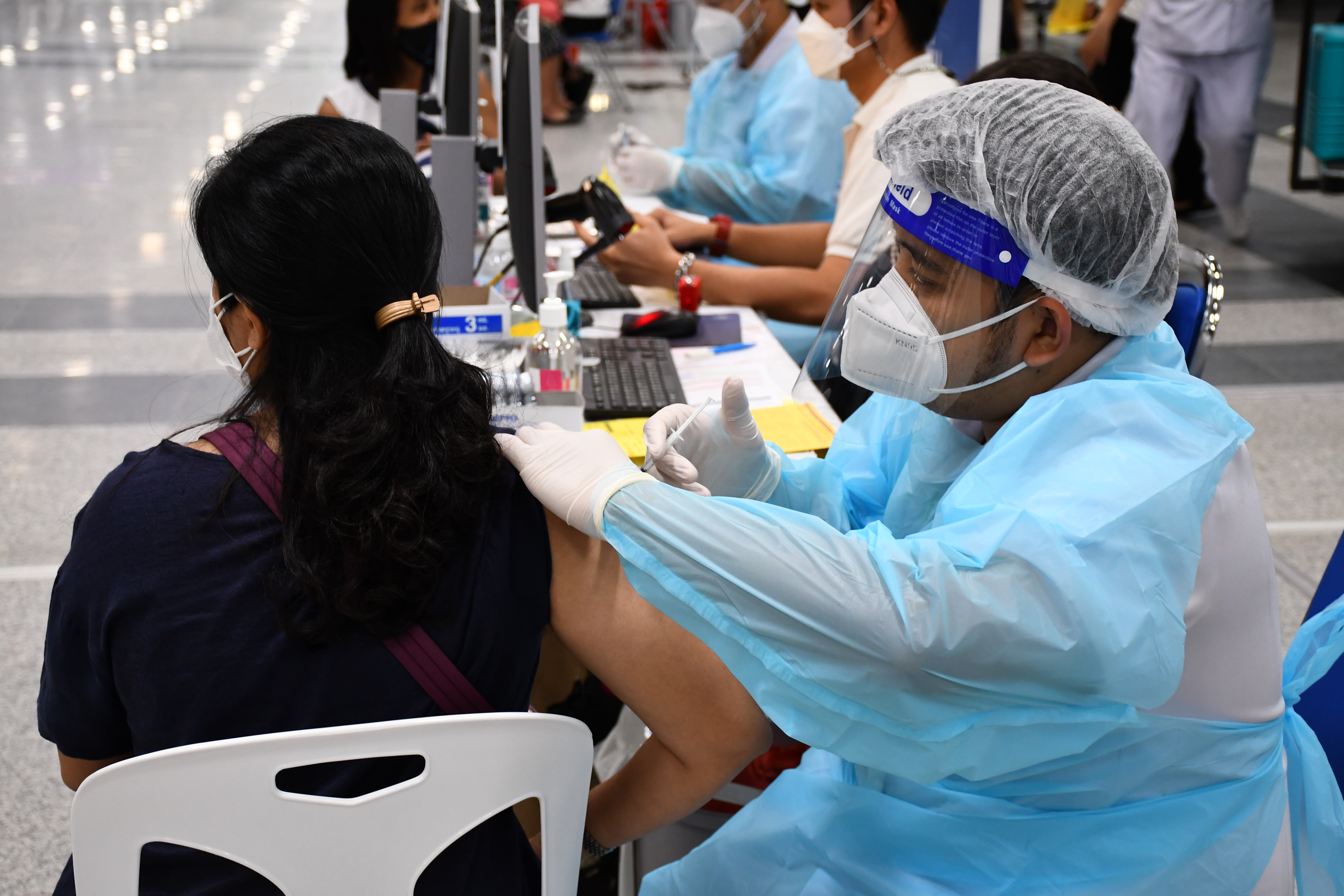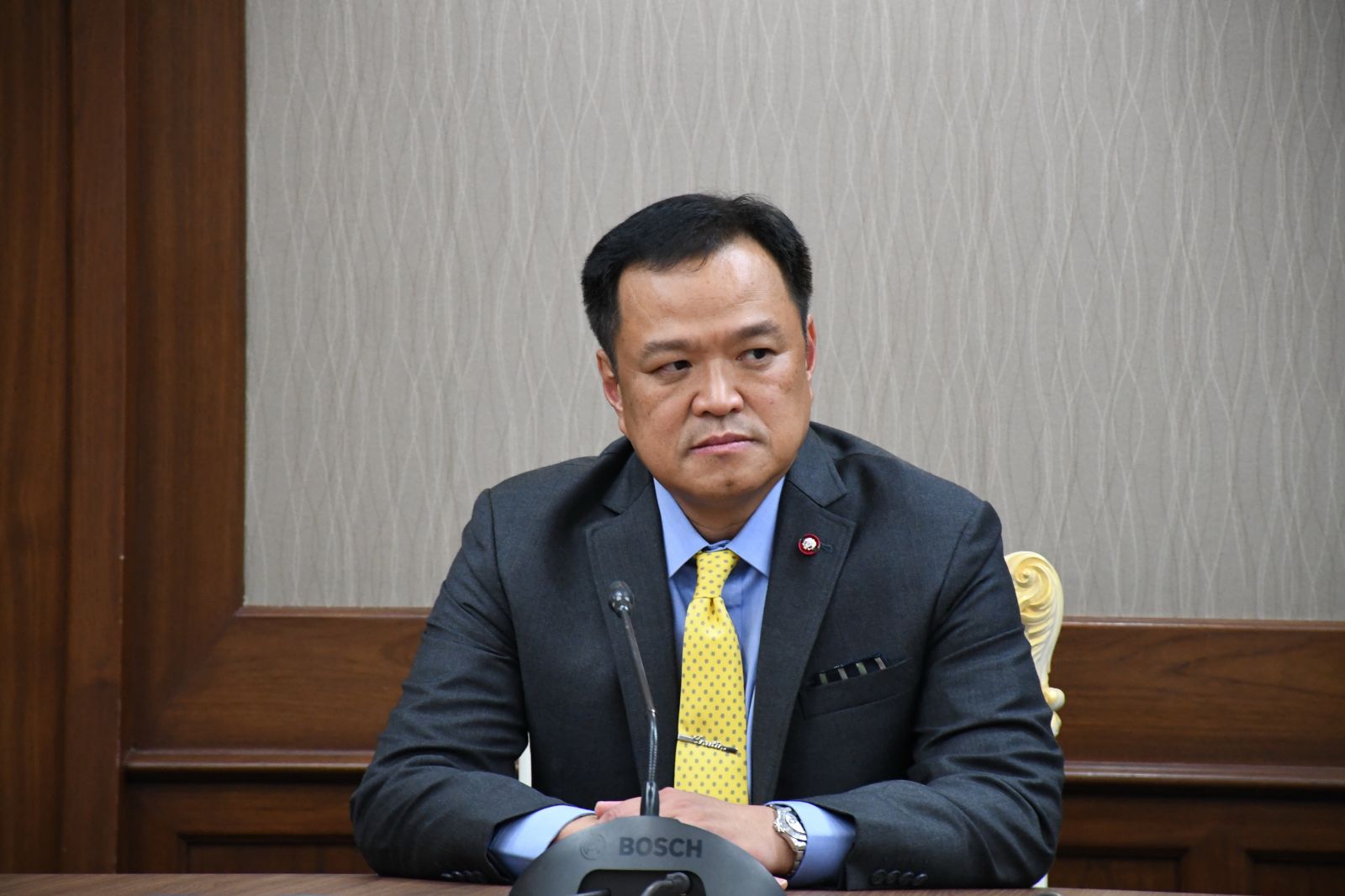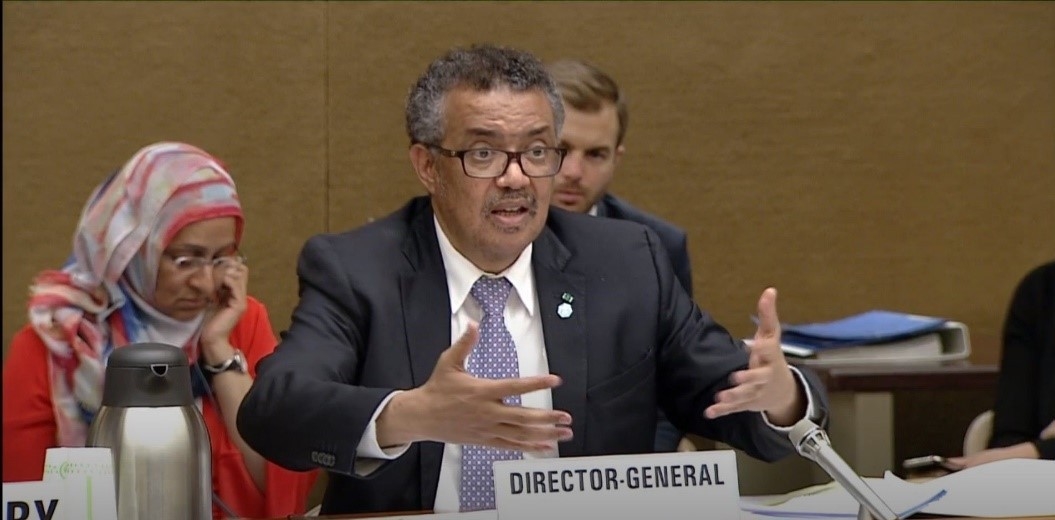
- Home
- DescriptionNews
NHSO offers no-fault compensation for vaccination’s adverse events

NHSO offers no-fault compensation for vaccination’s adverse events
The core principle of the National Health Security Office’s (NHSO) current provision of preliminary financial assistance to people suffering adverse events following COVID-19 vaccinations is it is a no-fault compensation programme.
This means affected parties will promptly receive the compensation without having to wait until results of a formal investigation into any such suspected vaccination adverse events are known.
From its point of view, the NHSO believes any delays in getting help to the people who are affected by adverse events after vaccination are equivalent to exacerbating the problems they are suffering and trying to cope with.
The financial compensation sub-committee usually processes requests for compensation as soon as possible, while the rates of the financial compensation are the same as those rates set under Section 41 of the 2002 National Health Security Act for adverse events in healthcare under the Universal Coverage Scheme (UCS).
A specific announcement, however, was issued by the National Health Security Board (NHSB) to include also vaccine recipients who are under the Civil Servant Medical Benefit Scheme (CSMBS) and the Social Security System (SSS).
When approved by the sub-committee, the compensation payment is required to be done within five days afterwards.

These are all in the policy set by Deputy Prime Minister and Public Health Minister Anutin Charnvirakul in his capacity as the chairman of the NHSB who is determined to improve public confidence in the government’s COVID-19 mass vaccination programme.
“Despite having an extremely low rate of adverse events after vaccination, the COVID-19 vaccines still are approved for emergency use only, which means there will likely be unwanted side effects as even those completely developed vaccines still have some side effects,” said Mr Anutin.
“The government has therefore aimed to assure members of the public that in case any of them suffers such side effects of the vaccine, he or she will promptly be compensated for,” he said.
After all, the data collected from injections of more than 100 shots of COVID-19 vaccines around the world showed side effects of these vaccines occurred at an extremely low rate, especially when compared with the risk of contracting COVID-19 if not vaccinated, said Mr Anutin.
That explains why every country has resolved to use the COVID-19 vaccine as a defence against the outbreak, he said.
“We can’t say there won’t be any side effects or adverse events after vaccination. But we can assure that these side effects and adverse events will be manageable and can be mitigated,” he said.
As the chairman of the NHSB, Mr Anutin insists the financial compensation will be paid without having to wait until the suspected vaccine side effects or vaccination adverse events are proved.
Even though these illnesses, injuries or deaths are later proved to have nothing to do with the COVID-19 vaccine injected, the compensation that was already paid won’t be recalled, he said.
The NHSO now has all 13 sub-committees, consisting of a sufficient number of medical experts, to promptly handle requests for the compensation, he said.
“We are ready to get the compensation payment done as soon as the sub-committee approves it,” he said.
The compensation rates are divided into three categories, namely at most 100,000 baht for a persistent injury or illness, at most 240,000 baht for losses of body parts or disabilities, and at most 400,000 baht for death or permanent disabilities.
The no-fault compensation idea has won international recognition for its benefits in terms of offering protection and remedies to vaccine recipients and encouragement for more people to get vaccinated.
The World Health Organization (WHO) has in March, 2021 implemented an international programme of no-fault compensation for people suffering adverse events after receiving a COVID-19 vaccine.

WHO Director-General Tedros Adhanom Ghebreyesus said this programme will help ease a burden facing people who suffer these vaccination adverse events as they won’t have to struggle to have their cases proved in court to demand financial compensation.
At least 25 out of all 194 member countries of the WHO are implementing a similar no-fault compensation programme, not only for people who suffer unwanted consequences of COVID-19 vaccination but also for ones suffering any other adverse events in healthcare.
Without having to wait for results of a formal investigation into a suspected case of adverse events in COVID-19 vaccination, affected parties will receive help in a timely manner and the damage will therefore be limited.
Details of the compensation programme vary from country to country such as where funds are from and who is in charge of the implementation of the programme.

Any suspected cases of such unwanted side effects or Organization (WHO)should be submitted to the NHSO for consideration, said Dr Jadej Thammatach-aree, secretary-general of the NHSO.
These cases are received through three channels, namely the hospital or the vaccination venue where vaccinations in question were conducted, the provincial public health office and the NHSO’s branch offices in any of the 13 health regions across the country, he said.
Only the national ID number, the name of the vaccination venue, the number of bank account are required to be filled in the compensation request form before submission, he said.
“We also want to know what side effects the COVID-19 vaccine may actually have in a real-world situation. If you don’t tell us, we will never know and keep assuming the vaccine is safe,” he said.
The information received from vaccine recipients will be compiled and reported to companies producing these vaccines for future improvement as well, he said.

Asst Prof Dr Surat Tanprawate, an expert on the neurological system and brain with the Neurological Society of Thailand who is a member of the sub-committee handling suspected cases of COVID-19 vaccine side effects and vaccination adverse events in the 1st Health Region in Chiang Mai has revealed that the sub-committee had approved the full payment of 400,000 baht to the family of Udon Yenchit, a village head in Phrae province who had died after receiving a shot of the COVID-19 vaccine.
Although the actual cause of death in this case still could not be confirmed at this point, the sub-committee has agreed that the preliminary financial assistance should be provided to the family of the dead person because the death had occurred during a time close to the COVID-19 vaccination, he said.
“The NSHO aims to ease as much as possible suffering encountering recipients of the COVID-19 vaccine, without having to wait for results of a formal investigation,” he said.

